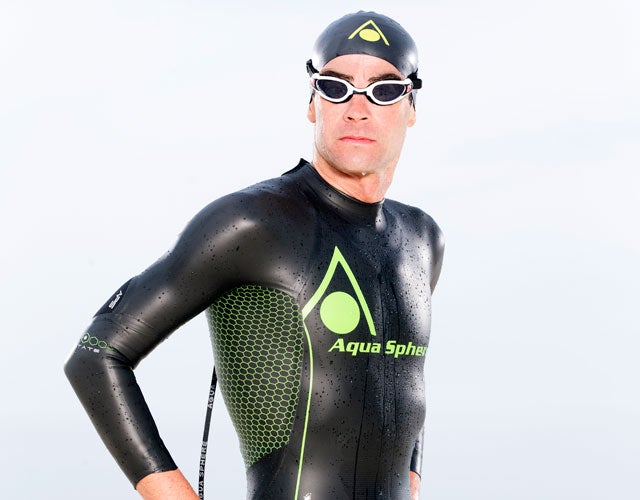An American hasn’t won Kona since 2002. In the 11 years since Colorado’s Tim DeBoom nabbed the title, Australians dominated six straight races. This year, Belgian Frederik Van Lierde became the Ironman world champ. America’s greatest hope at reclaiming the top podium spot, triathlon pundits believe, is a Boulderite named .��
IRONMAN WORLD CHAMPION MIRINDA CARFRAE’S TRAINING TIPS
Inside the mind and training habits of the fastest woman in Kona history.The 33-year old deserves the recognition. In May, he set the IM Brazil course record, clocking in at 8:01:32. And at this year’s Ironman World Championships, he was the highest-placing American, completing the course in fifth-place.
Below, O’Donnell shares tips on training and racing and dealing with all of that pressure.
10. Believe in your training
For most people, the internal pressure probably outweighs the external. We put a lot of pressure on ourselves—to perform, and not to let down our family or ourselves. That can sometimes be worse than that pressure from the outside.
You can turn pressure into a positive or a negative. It can definitely disrupt your pre-race train of thought. The first year I did Kona three years ago, I did feel pressure. After that year—I DNFed, I was sick at that point—I came to realize that I was putting in the work and had done everything correctly, so all of that outside stuff doesn’t matter. I’m ready. Having self-confidence in what I’ve done and how I’ve prepared going into the race really helps me deal with that pressure.��
9. Prioritize your workouts
Prioritize your key sessions. Make sure those happen. Make sure you’re fresh, and ready to do those well. All those other fluff workouts, don’t get too stressed about those. If you’re squeezing those in and you’re showing up to your key sessions tired, you’re not gonna get as much out of those workouts as you can and you’re not going to see the physiological benefits from those workouts because you can’t just really get after them.
Prioritize your family and work too, because that extra stress of trying to fit everything in is only going to be a detriment to you at the end of the day.
8. Mind your core
At the end of the day, everything you do always comes back to your core. On the bike, if your core gets shot, then you drop your back and get lower back issues. Core strengthening has been a big addition to my regimen this year. I’m in the gym two to three times a week working on core strength and mobility. [Check out three killer core exercises here.]
7. Gear up properly
For swimmers, there’s two groups of wetsuits you can chose from: one for a non-swimmer who has buoyancy issues, and one if you have a competitive swim background. If you’re in that competitive background, flexibility in the shoulders and the torso of the wetsuit is the number-one factor. If you’re not a swimmer by trade, a wetsuit with a little bit thicker neoprene that has more core buoyancy is probably the best thing. [O’Donnell swims in the .]
6. Keep at it
Doing well at this sport is about consistency. It’s not only about getting in a great workout, it’s about staying healthy and injury-free to continue getting the work done year after year.
5. Find your motivation
We push our bodies, really to the limit. It definitely is hard. I think you have to be self-motivated [to keep training]. For me, it’s having unfinished business. I want to win in Kona one day, so my job in this sport is not nearly done yet.
4. Mind the 48-hour fuel rule
Your race-day nutrition really starts 48-hours in advance of when you go off. I eliminate the roughage before an Ironman two days out and increase my carbohydrate intake. The night before I just do grilled chicken and white rice.
Nutrition the morning of is critical. I try to do about 1.5 to 2 grams of carbohydrates per kilogram of bodyweight for my breakfast. It’s really important to practice your pre-race meal in the morning before big training sessions. The morning of I use Ensure, and I’ll have a gluten-free muffin. Double chocolate.
3. Do your thing
When we [O’Donnell and his fiancée, two-time Ironman World Champion Mirinda Carfrae] first started racing together, it was a little bit harder because we wanted to accommodate each other and didn’t want to disrupt anything. Now we both know what we need to do. I’ve been doing Ironman-distance races for two-and-a-half, three years now, and this is my first time in Kona where I felt like I’ve come into my own in terms of knowing what I need to do, and I have the self-confidence now to get that done.
2. Embrace the off-season
I think it’s important to put on weight. It’s just too much of a stress on your body to be at that peak Ironman form all year. It’s important to let your body recover—let it have more nutrients and store some fat. I used to be a swimmer. I had a lot more body mass back in the day. I put on 10 to 12 pounds pretty quick, then kind of flatten off. I consider that my real body weight.
1. Have a hero
Besides Rinny [fiancée Mirinda Carfrae], I’m a huge Larry Bird fan. I loved his work ethic. He always sacrificed his body for a play. He wasn’t one of those guys like a Jordan or a Kobe Bryant where you watched him play basketball with natural finesse. He was kind of a gritty player. He didn’t always look pretty, but he pulled off some amazing stuff. I love that guy.


